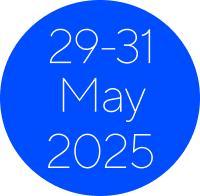Chair: Sarah M Schwab-Farrell (United States)
Speakers: Karime Mescouto (Australia), Paula L Silva (United States), Peter Stilwell (Denmark)
- Define the knowledge-practice gap in physiotherapy with respect to a multidimensional or biopsychosocial approach to practice and critically reflect on physiotherapy practices in relation to this gap.
- Empower physiotherapists to better support the disability experience through the application of Ecological principles in their practice.
- Identify how the presented theory and evidence can be applied to physiotherapy practice and facilitate agency and adaptability for recipients of care.
The overarching goal of physiotherapy is to improve movement and promote function within an individual’s complex environmental and social realities. There is growing recognition worldwide of the importance of contextual factors in physiotherapy. Despite this recognition, there is a well-noted knowledge-practice gap with respect to physiotherapists effectively navigating the interactivities among social, environmental, biological, and psychological factors contributing to health and function.[1] Such interaction is usually conceptualized through a biopsychosocial model, which has been criticized for a lack of theoretical clarity and the under-consideration of broader contextual aspects of health.[2]
As a result of this gap, many recipients of care unfortunately perceive physiotherapy interventions as fragmented and disconnected from their functional goals. Worse, some people with disability or injury characterize physiotherapy interventions as ableist or oppressive because they implicitly take as “ideal reference” the bodies of people without disability and aim to “fix” component bodily characteristics.[3,4] There is a need for physiotherapy practice to better align with our knowledge of contextual factors and the related experiences of those whom physiotherapy serves.
In this focused symposium, we propose that engagement with Ecological Theory [5] might help to address the knowledge-practice gap. Ecological Theory is principally focused on the dynamic interaction between an individual and their environment. We seek to empower participants to critically reflect on their practices and question underlying assumptions based on an Ecological approach to disability. The symposium will begin with a brief introduction by Dr. Sarah Schwab-Farrell to outline the knowledge-practice gap and preview subsequent symposium presentations. Dr. Karime Mescouto will then critically evaluate the biopsychosocial model of disability, [2,6] discussing challenges and opportunities, particularly with respect to contextual factors such as power, privilege, and implications for the knowledge-practice gap.
Drs. Paula Silva and Sarah Schwab-Farrell will introduce participants to Ecological Theory and a core tenet of the theory, affordances, and explain how an affordance-based approach to physiotherapy can act to complement the biopsychosocial model and address the knowledge-practice gap. Affordances are opportunities for action that are offered to an individual by the environment. People with disability must discover and enact previously unimagined affordances, termed “activist affordances,” through effortful and creative movement strategies.[4,7] Speakers will discuss how physiotherapy practice might facilitate, support, and give longevity to these unique movement strategies that enable everyday activity for people with disability.
Dr. Peter Stilwell will provide the final presentation of the symposium, applying Ecological Theory and affordances to the management of chronic pain.[8-10] He will describe how Ecological Theory can elucidate the chronic pain experience as living in a world with “closed-off” affordances. Rather than targeting a biomedical root cause of pain, physiotherapy interventions can focus on “opening up” affordances, encouraging movement adaptability, and considering contextual factors with respect to individual goals.
The symposium will conclude with a summary and an interactive discussion where participants will engage with presenters to consider how Ecological Theory can be applied to reappraise existing evidence in physiotherapy and consider future research directions and challenges, including implications of pluralism, power, and privilege.
- Schwab, S. M., Andrade, V., Santos Moreira, T., Cavanaugh, J. T., Vaz, D. V., & Silva, P. L. (2023). Narrowing the physiotherapy knowledge-practice gap: Faculty training beyond the health sciences. Physiotherapy Theory and Practice, 39(4), 675-689.
- Mescouto, K., Olson, R. E., Hodges, P. W., & Setchell, J. (2022). A critical review of the biopsychosocial model of low back pain care: Time for a new approach? Disability and Rehabilitation, 44(13), 3270-3284.
- Schwab, S. M., & Silva, P. L. (2023). Intellectual humility: How recognizing the fallibility of our beliefs and owning our limits may create a better relationship between the physical therapy profession and disability. Physical Therapy, pzad056.
- Silva, P. L., & Schwab, S. M. (2024). Disability through the lens of affordances: A promising pathway for transforming physical therapy practice. In The Modern Legacy of Gibson’s Affordances for the Sciences of Organisms (pp. 291-326). Routledge.
- Vaz, D. V., Silva, P. L., Mancini, M. C., Carello, C., & Kinsella-Shaw, J. (2017). Towards an ecologically grounded functional practice in rehabilitation. Human Movement Science, 52, 117-132.
- Cormack, B., Stilwell, P., Coninx, S., & Gibson, J. (2023). The biopsychosocial model is lost in translation: From misrepresentation to an enactive modernization. Physiotherapy theory and practice, 39(11), 2273-2288.
- Dokumaci, A. (2023). Activist affordances: How disabled people improvise more habitable worlds. Duke University Press.
- Coninx, S., & Stilwell, P. (2021). Pain and the field of affordances: An enactive approach to acute and chronic pain. Synthese, 199(3-4), 7835-7863.
- Stilwell, P., & Harman, K. (2019). An enactive approach to pain: Beyond the biopsychosocial model. Phenomenology and the Cognitive Sciences, 18(4), 637-665.
- Vaz, D. V., Stilwell, P., Coninx, S., Low, M., & Liebenson, C. (2023). Affordance-based practice: An ecological-enactive approach to chronic musculoskeletal pain management. Brazilian Journal of Physical Therapy, 100554.
See the 24 focused symposia to be presented at congress.
Find out who the key speakers at congress will be.
Find out which clinical topics will be covered in these discussion-based seminars.




